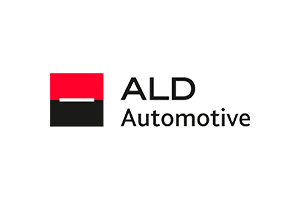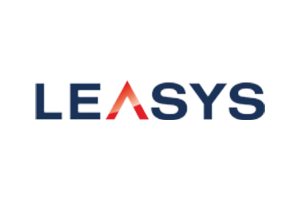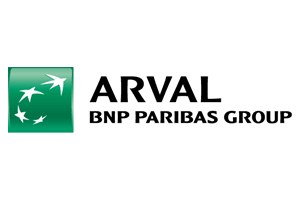Leasing, What Is It Good For?
Although Edwin Starr is not on record saying that the answer is definitely not “absolutely nothing”.
Leasing a car is widely regarded as the cheapest solution for driving a brand-new vehicle, with deals that have low upfront costs and monthly payments, and you have the added bonus of being able to update your car every few years.
Some people still believe that the only way to have access to a new car is to purchase one outright or to get a loan to finance the car, for example through a Hire Purchase agreement with a dealership. But this is not the case, and more and more people are choosing to lease their cars.
The stigma around leasing has been predominantly aimed at its complexity and lack of transparency. However, this is generally associated with a type of agreement called Personal Contract Purchase (PCP) which is favoured by dealerships. A PCP tends to have higher initial payments, interest and a final substantial “balloon payment”, which secures your ownership of the car.
However, in the upcoming aftermath of the FCA Motor Finance Review, we expect to see less PCP agreements and the rise of the favoured leasing arrangement among brokers, Personal Contract Hire (PCH).
PCHs don’t have a final balloon payment as you do not purchase the car at the end of the lease. The cost of a PCH is pinned on how well a car retains its original value and how much the finance company believe they can sell it for at auction after your lease ends, so the slower the value of the car depreciates the cheaper your lease will be for that car.
This often manifests as more expensive or higher spec level cars being much cheaper to lease than you expected as they can retain their value better and are more desirable to a second-hand buyer.
Whether you’re using the car for personal use or allocating it to a business, through leasing you can take advantage of some tax benefits that you can’t access when owning a car.
We are aware that sometimes the terminology used in leasing can be confusing and difficult to understand. Terms like payment profiles, monthly rentals, lead times and residual value aren’t phrases that get used in day to day life. But, we are here to explain it all and put you at ease - as it is much simpler than it initially seems. I’m sure you’ve some more questions around why you should choose to lease your next car rather than buying, so let us take you through some of the more common questions:
Are the Monthly Rentals Expensive?
As previously mentioned, it all depends on the car’s ability to hold its value. The finance company buy the car from the dealership and they calculate how much the car will be worth at the end of your lease, the difference of these values then determines your rental amounts. If a car can be sold for 80% of its original value at the end of your lease, then you only need to pay for 20% of the car’s value to use it for the duration of the lease. Whether it is sold for more or less than 80% at the auction is the risk of the finance company, it has no effect on you at all.
Most people prefer to make monthly payments for their car as it’s easier to budget for. It also means that you don’t need a huge lump sum to purchase outright or to have a high-interest unsecured loan show on your credit score.
Am I Limited to Certain Cars?
When you walk into your local dealership, you can choose from anything they have on their forecourt. Some cars will have added options and some cars may have something you want or don’t want or even missing a feature you would like. Alternatively, you can order one through them from the factory and pick it up when it’s ready, with all the added extras you would like.
However, when you lease a car through a broker like Xcite Car Leasing you can have any car you want! If it is sold in the UK market, then you can get it. We have a network of dealerships across the UK to ensure we can have access to in stock vehicles if you are looking for a quick delivery, and work with a number of funders so we can negotiate the best lease prices for you.
If you have specific requirements for extra equipment or features, we can include those as well. The most common types of optional equipment available for nearly every car includes:
- Alloy Wheels
- Communication Aids
- Driver Information Tools
- Driving Aids - incl. parking assistance
- Entertainment
- Packs (multiple options added together)
- Paint
- Styling - external and internal
- Towing attachments
Do I Need To Pay A Large Sum Upfront?
No, you don’t necessarily have to pay a large initial payment. Leasing is entirely flexible and can be catered to suit your needs.
A HP agreement will usually require a larger initial payment - typically 10-15% of the value of the car.
A PCP agreement will allow a bit more flexibility with your initial payment, but the final payment will usually be 45-55% of the value of the car at a typical interest rate of 4-7% APR.
With PCH, whether you pay a large amount as your first payment or a smaller sum, the overall cost of your lease does not change.
You may have sold an old car and have some extra funds to put down for the initial payment to reduce the following monthly payment amounts. Or if you would rather not pay a large amount upfront you can pay a slightly higher monthly cost. When taking out a lease with Xcite Car Leasing we can look at which option is best for you.
Will the Monthly Payment Amounts Change?
Interest rate fluctuations or the changing resale value of the car will have zero impact on your monthly payments.
In terms of the financial aspect of your payments; once you’ve signed the contract and it’s been processed by the finance company - that’s it. Your costs are fixed for the duration of the lease. This makes budgeting much easier.
There may be additional charges during the lease, for example, if the vehicle excess duty, also known as road tax increases, then the funder may charge you the amount of the increase as well. Other instances where you might have to pay an additional amount include admin fees for services such as putting a personalised number plate on the vehicle or getting the paperwork to authorise travel abroad.
Additionally, if you get a driving or parking fine this will also be passed onto you by the lease funder.
What Do I Do at the End of My Lease?
In the build-up to the end of your lease, we will usually contact you to discuss what you’d like to do next and also to arrange a collection date with you. Then a collection agent will be sent from the finance company to assess the condition of the car and drive it away. That’s it! No need to take hundreds of pictures and advertise it on everyone corner of the internet. No need to meet with endless swarms of time-wasters asking questions about parts of the engineering that neither of you knows anything about. No need to leave a “FOR SALE” sign in the window and pray for the phone to ring.
Any More Questions?
Hopefully, this article has helped to explain why you should lease your next brand new car, rather than buying or financing.
If you have any further questions about leasing and how it can work for you, you can check out more of the more frequently asked questions here. Or if you would like to speak to one of our Leasing Consultants about what options are available for you then you can contact them at hello@xcitecarleasing.co.uk, on 0330 221 0000.
If you want to see our current leasing offers, to get an idea of how the costs compare to other methods, check out our Top Offers page.









Leave a Comment